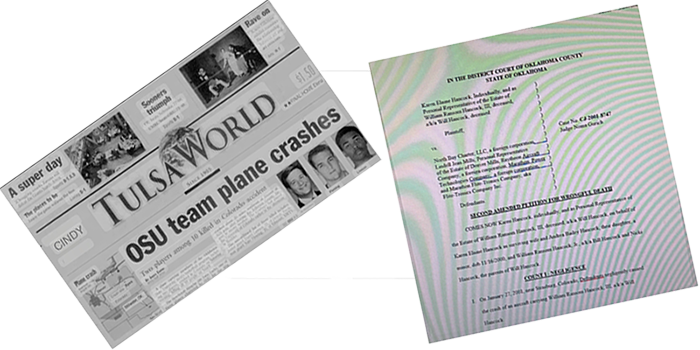Did you know that over 60% of personal injury claims are settled out of court, yet only a shocking 30% of people report being satisfied with their settlement amount? If you’re facing the daunting road of an insurance negotiation injury case, you’re not alone—and the difference between a disappointing offer and a fair settlement could come down to what you do next. This comprehensive guide delivers the know-how professionals use to succeed. Whether you’re at the start of your claim, considering legal help, or simply unsure what your case is worth, the steps below will help you get the compensation you deserve.
Startling Facts: How Insurance Negotiation Impacts Your Injury Case
“Over 60% of personal injury claims are settled out of court, but only 30% of individuals report being satisfied with their settlement amount.”

The negotiation process can be the most critical stage of any injury case. Insurance companies know this and use seasoned adjusters trained to protect their bottom line, not yours. This means your financial recovery often hinges on how well you navigate these crucial talks. Many claimants, unsure of their rights or what constitutes a fair settlement, make mistakes that limit what they can recover. Understanding how insurance negotiation really works determines if you’ll walk away secure or shortchanged by thousands.
In this article, you’ll discover the inside track to maximize your injury claim. From understanding what personal injury law demands, to crafting a demand letter that cannot be ignored, each section breaks down the exact moves experienced negotiators and attorneys take behind the scenes. You’ll also learn practical tips, common pitfalls, and the precise moments when partnering with a professional can make all the difference.
What You’ll Learn About Insurance Negotiation Injury Case Success
- The key stages of the insurance negotiation injury case process
- Critical mistakes to avoid when negotiating with insurance companies
- How to evaluate if your injury claim is worth pursuing
- Expert tips to strengthen your personal injury claim
- When to contact an injury lawyer for maximum results
Understanding the Basics: What Constitutes an Insurance Negotiation Injury Case
Before diving into the negotiation process, let’s get clear about the foundation. An insurance negotiation injury case arises when you’ve suffered harm due to an accident or another party’s negligence, leading to an injury claim filed with an insurance company. These claims are the starting point for seeking compensation for your medical expenses, lost income, and pain and suffering.
Not all injury claims are created equal. Some involve auto accidents, workplace mishaps, or slips and falls. What unites them is the need to prove liability (fault), document damages (like lost wages or medical bills), and support your claim with compelling evidence. At its core, handling a personal injury claim means engaging in a careful dance with insurers who are professionally trained to minimize payouts. Mastering this dance dramatically enhances your chance of winning a fair recovery.
Defining Personal Injury and Insurance Claim

A personal injury refers to physical or psychological harm caused by another’s negligence, think car crashes, slip and falls, or dog bites. When these events occur, you’re entitled to pursue compensation through an insurance claim. This process involves reporting the accident, gathering medical documentation, and seeking reimbursement for economic damages (like medical bills and lost wages) as well as non-economic harms (pain, suffering, emotional distress). Successful cases involve clear proof that shows how your injury directly stems from the incident in question.
The heart of any injury case is establishing both liability and the true extent of damages. Insurance companies will scrutinize every aspect—from police reports to physical therapy receipts to determine responsibility and the amount they must pay. Understanding the distinction between insurance claim types, applicable injury law, and the nuances of personal injury cases arms you with the facts you need to go toe-to-toe with major insurance players.
The Injury Law Foundation: Rights and Obligations
Navigating an insurance negotiation injury case starts with knowing your legal rights. Injury law is designed not only to compensate victims for out-of-pocket losses but also to restore their quality of life after an accident. The law gives you the right to claim compensation from an at-fault party’s insurer and makes it illegal for companies to act in bad faith—such as ignoring your claim or offering a clearly unreasonable sum. But these legal protections only help if you actively use them in your favor.
Equally important are your obligations. You must promptly notify the insurer after an incident, supply full documentation, and cooperate with accident investigations. Failing to meet these standards (like providing incomplete records or missing deadlines) can undermine even the strongest personal injury claim. A good grasp of personal injury law means you can build your case around proven facts, anticipate insurance company tactics, and overcome legal hurdles that could otherwise delay or derail your settlement.
Overview of Injury Law and Its Impact on Injury Cases
Injury law covers everything from the legal definition of negligence to the types of damages you can claim in an injury case. It influences everything your insurer will consider, such as contributory negligence (if you’re partly at fault), statutes of limitation (how long you have to sue), and the standards for proving pain and suffering. A basic misunderstanding of these laws can result in undervaluing your personal injury claim, settling for less, or even forfeiting your right to compensation altogether.
By understanding the core principles of injury law, you equip yourself to prepare strong evidence, counter common insurance company arguments, and protect your interests. Whether you’re managing an injury claim yourself or working in tandem with an injury lawyer, knowing the law means you’ll ask the right questions and avoid being blindsided during settlement negotiations.
The Role of Insurance Companies in Your Injury Case
Insurance companies play a central role in every insurance negotiation injury case. Their goal is straightforward: resolve claims quickly and at the lowest possible cost. To succeed, you must understand their methods and motivations. From the moment a claim is filed, the insurer dispatches an insurance adjuster, an expert trained to assess your evidence, identify policy coverage gaps, and spot inconsistencies that justify denying or reducing payment.
This is why dealing with insurance companies can be so challenging. Adjusters use scripted questions designed to elicit statements that can be used against you, request extensive documentation, and may push you to accept an early (and low) offer. Being aware of this dynamic is your first line of defense: providing only necessary information, staying consistent in your statements, and documenting all communications can help protect your claim value.
How Insurance Companies Assess an Injury Claim

Once your personal injury claim is submitted, the insurance company uses a detailed process to evaluate its merits. Adjusters look for proof that the policyholder is liable, review medical records, analyze accident reports, and even consult medical experts. They’ll also note pre-existing conditions or gaps in treatment, which they may cite to reduce payout. Knowing this, your best strategy is to submit complete medical documentation and objective proof that ties your injury directly to the incident.
The adjuster will make a determination based on the perceived strength of your claim, using formulas to estimate economic damages (like lost wages and treatment costs) and “pain and suffering.” However, these estimates are rarely in your favor. Expect an initial offer that is purposely low—it’s a negotiation tactic, not a final judgment. Understanding how the insurance company operates lets you anticipate their next move and craft stronger responses.
Step-by-Step Guide: Navigating the Insurance Negotiation Injury Case Process
- Gathering evidence and documentation for your personal injury claim: Start by collecting all relevant records—incident reports, photos, witness statements, medical documents, receipts, and notes detailing pain and impact on daily life. Comprehensive documentation forms the backbone of any successful claim.
- Submitting an insurance claim: Notify the insurance company promptly, complete all required forms, and provide your evidence. Respond quickly to follow-up requests but do not volunteer information that could later harm your claim.
- Communicating with insurance adjusters: Remain polite but guarded. Answer only what is asked, clarify unclear questions, and never admit fault or minimize your injuries during these discussions. Avoid giving recorded statements without consulting an injury lawyer.
- Responding to the initial offer: Expect a low starting figure. Take time to review it, compare with your actual losses, and reject it if insufficient. Always respond in writing and include evidence supporting your counter-offer.
- Negotiating the settlement amount: Enter into back-and-forth communication, using documentation and sometimes expert opinions to justify your number. Stay patient, persistent, and do not be afraid to challenge the insurer’s evidence or calculations.
- When to consider a settlement offer or file a lawsuit: If negotiations stall, you must weigh the strength of your evidence, the value of the offer, and potential risks of going to court. Consulting an experienced injury lawyer at this stage can tip the odds in your favor.
By carefully moving through this step-by-step process, you maximize your chances for a successful injury claim settlement. Remember, thorough preparation and strategic negotiation often make the biggest difference in the outcome.
Writing a Demand Letter: Maximizing Your Injury Case Value
“A compelling demand letter can increase the average settlement amount by up to 40%.” – Injury Lawyer

The demand letter is your opportunity to clearly state what you believe your personal injury case is worth and why. Think of it as your best chance to lay out the facts, convey the full impact of your injuries, and set the stage for strong negotiations. A well-crafted letter includes a detailed recounting of the accident, documented damages (including medical expenses and future care needs), supporting evidence, and a specific monetary demand.
Remember: adjusters look for weaknesses to justify low offers. Your demand letter should avoid vague statements and instead show thorough calculation, reference all supporting documents, and highlight the long-term impact of your injury. When possible, cite similar injury cases and verdicts to support your amount. Many attorneys agree, well-structured demand letters repeatedly set the benchmark that increases the overall payout for their clients.
What Is Your Injury Claim Worth? Determining a Fair Settlement Amount
| Severity of Injury | Typical Settlement Range | Time to Resolve |
|---|---|---|
| Minor (Soft Tissue) | $2,500 – $25,000 | 2-6 months |
| Moderate (Fracture) | $25,000 – $75,000 | 4-12 months |
| Severe (Disability) | $100,000+ | Over 1 year |

The worth of your injury claim depends on several factors including the severity of your injuries, level of fault, future medical needs, lost income, and even the negotiation skills you bring to the table. Insurers often base their initial settlement offer on average awards for similar personal injury cases, and adjust upward only when confronted with robust evidence and strong argumentation.
To determine a fair settlement amount, calculate your actual costs: medical bills, property damage, lost wages, and continuing expenses. Add an appropriate amount for pain and suffering, typically using a “multiplier” of your direct costs (higher for severe or permanent injuries). Review prior settlement agreements in similar injury cases—and don’t be afraid to negotiate up.
Mistakes to Avoid in Insurance Negotiation Injury Cases
- Accepting the initial offer without review
- Providing recorded statements without legal advice
- Failing to document all injuries and damages
- Underestimating future medical expenses
One of the most common traps in any insurance negotiation injury case is jumping at the first offer. Remember, that initial offer is rarely in your best interest, it’s meant to settle your injury claim quickly and cheaply. Don’t provide recorded statements unless advised by an injury lawyer, and meticulously document every element of your damages, from minor limp to lost promotions at work.
Finally, anticipate ongoing needs. Too often, claimants ignore future medical expenses or rehabilitation, leaving them exposed to bills long after the case closes. Consult with your doctors and, if possible, a skilled personal injury lawyer to estimate the full picture of your damages. This diligence keeps you protected now and in the future.
The Importance of Experienced Injury Lawyers
While many injury claims can be resolved solo, hiring a seasoned injury lawyer can be the smartest move especially in complex or high-stakes situations. Injury lawyers know how to handle challenging insurers, quantify every aspect of damage, question lowball offers, and, if necessary, file a lawsuit to protect your rights. Research consistently shows that claimants who use a personal injury attorney receive significantly higher settlements.
Insurance companies recognize when a professional is involved and routinely increase offers rather than risk costly litigation against expert negotiators. For claimants overwhelmed by paperwork, unsure of their claim’s value, or facing pushback from adjusters, contacting a qualified attorney early can prevent mistakes and put real leverage on your side in the negotiation process.
When to Hire an Injury Lawyer for Your Insurance Negotiation Injury Case

If your injury claim is complicated due to multiple parties, unclear liability, serious or permanent injuries, or stubborn insurers you should consult with an experienced injury lawyer right away. Attorneys have access to resources like accident reconstruction experts, medical consultants, and established legal strategies, which level the playing field.
Signs you need a lawyer include: an outright claim denial, ongoing lowball offers, intimidating legal jargon, uncertainty over how much your claim is worth, or simply feeling overwhelmed. And remember, most initial consultations are free, removing barriers to expert support.
Free Consultation: Empowering Your Personal Injury Case
A free consultation connects you with a professional evaluation of your personal injury case with no risk and no upfront commitment. Our expert injury attorneys review your insurance negotiation injury case, flag gaps in your claim, and outline the best next steps. Even if you ultimately handle negotiations yourself, this expert feedback can dramatically improve your outcome.
Leverage these opportunities to ask about the strength of your case, the best settlement negotiation tactics, and how an attorney can help. Many law firms only collect if you win, making hiring a legal ally accessible and risk-free to nearly everyone.
Case Studies: Winning Real-World Insurance Negotiation Injury Cases
- Case 1: Soft tissue injury, successful negotiation without a lawsuit – A client suffered a whiplash injury in a minor accident. Meticulous documentation and a comprehensive demand letter led to a settlement 50% above the insurer’s initial offer, without court.
- Case 2: Fracture settlement, maximizing value through documentation – After a slip and fall, a claimant worked with their injury lawyer to show the true cost of ongoing physical therapy, resulting in compensation covering all medical bills and lost wages.
- Case 3: Severe burnout, why legal strategy matters – In a workplace accident resulting in partial disability, expert negotiation (including future care plans and lost earning capacity) forced the insurance company to offer a six-figure sum rather than risk trial.
These examples show the power of preparation, persistent negotiation, and, when needed, strategic legal intervention in maximizing outcomes in real insurance negotiation injury cases.
Below an expert lawyer breaks down negotiation steps, explains how to maximize a settlement offer, and shares actionable recommendations for handling your insurance negotiation injury case all from a leading legal office.
How to Negotiate Injury Settlement with an Insurance Company
To negotiate your injury settlement effectively, arm yourself with solid documentation (incidents, expenses, long-term effects), research typical settlements for your type of injury, and never accept the first initial offer. Counter low offers with data and evidence. Stay patient and professional, and don’t hesitate to ask for time to consider any proposed settlement. If you feel pressured or undervalued, a personal injury lawyer can step in to press your case further.
Communication is key: always get offers and rejections in writing, respond promptly, and document each step. If a settlement agreement can’t be reached after several good-faith rounds, be ready to escalate sometimes the willingness to file a lawsuit is enough to move negotiations forward.
How Much Do Most Personal Injury Cases Settle For?
Most personal injury cases settle for amounts reflecting the type and severity of the injury. While minor injury claims may resolve for several thousand dollars, more serious claims for fractures or significant disability often command five to six-figure settlements. Industry studies show average settlements for moderate injuries (like fractures) fall in the $25,000–$75,000 range, while severe or permanent injuries can exceed $100,000. Variables like medical expenses, missed work, and emotional suffering all impact what your claim is worth.
Remember, these are only averages. Strong documentation, expert negotiation, and sometimes the threat of legal action can push insurers to increase their offers beyond industry norms.
What Not to Say to an Injury Lawyer
When speaking with an injury lawyer, be truthful but avoid guessing facts or speculating about the accident, stick to what you know. Never downplay your injuries or “just want any offer,” as this can weaken your negotiating position. Refrain from saying you’re “ready to settle quickly,” as urgency can lead to lower outcomes. Also, don’t hide any prior similar injuries or previous claims; your lawyer needs the full story to build the strongest case on your behalf.
An honest and detailed account from the start helps your legal team strategize more effectively and prevents unpleasant surprises as your insurance negotiation injury case unfolds.
What is a Reasonable Settlement Offer?
A reasonable settlement offer covers all documented expenses, including past and future medical costs, lost wages, pain and suffering, and any other economic damages. For minor injuries, that might be a few thousand dollars while serious personal injury cases should include compensation for long-term disability, medical needs, and diminished earning capacity. Review what similar cases in your state resolved for, calculate your total losses, and compare these figures to the insurer’s proposal.
Consult with a skilled personal injury lawyer when you’re unsure about your claim’s worth or if the offer seems too low; an attorney’s guidance is the surest way to ensure a fair outcome.
Top FAQs about Insurance Negotiation Injury Case
- How long does an insurance negotiation injury case take?
Most cases span from a few months (for minor injuries) to over a year (for complex or severe cases). Patience is important; rushing often leads to smaller settlements. - Can I accept an offer and still negotiate later?
Once you accept a settlement and sign a release, you cannot revisit the claim. Only agree to a settlement offer when you’re sure it covers all past and future needs. - Is it possible to reopen an insurance claim after settlement?
In almost all cases, no. Settlement agreements are legally binding, which is why careful review and expert advice are vital before signing anything. - What evidence impacts my insurance negotiation injury case the most?
The strongest evidence includes detailed medical records, photographs of injuries and accident scenes, witness statements, proof of out-of-pocket expenses, and consistent documentation of symptoms and treatment.
Key Takeaways: Winning Your Insurance Negotiation Injury Case
- Always be prepared and document everything for your injury claim
- Do not accept the initial settlement offer without careful review
- Understand how injury law and insurance companies operate
- Use negotiation strategies or consult an injury lawyer to improve your settlement amount
Next Steps for Your Insurance Negotiation Injury Case
Follow the guidelines above to take control of your insurance negotiation injury case, avoid the most common pitfalls, and secure the compensation you deserve.
Ready to Win?
For more information contact one of our highly qualified Attorneys at 580-224-0900 for a free consultation and the expert support you need to win your insurance negotiation injury case.


